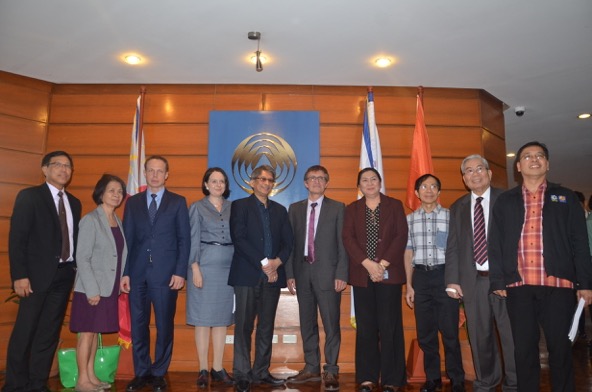
©Development Academy of the Philippines
PASIG CITY (November 24) – “You should not underestimate the whole spectrum of Russia-China relations”. These were the words of Dr. Viktor Sumsky, Director of the ASEAN Center of the Moscow State Institute of International Relations, as he talked about how enduring the Russia-China relationship can be, even if the US should take a potentially drastic foreign policy shift under a Trump presidency. This was in response to the question on what would be the political basis of ties between Moscow and Beijing should the US revert to an isolationist foreign policy.
“You should not underestimate the factors of mutual gravitation which exist irrespective of the United States. And I’m talking here about the whole spectrum between us and China,” Dr. Sumsky said.
Some of these factors include the ‘real complementarity’ in the economies of Russia and China, Russia’s role as an important source of energy materials and as a supplier of military arms for China..
Dr. Ekaterina Koldunova, Deputy Dean of School of Political Affairs from the same institute, added that Russia played an important role in helping China in its Belt and Road Initiative, especially in Central Asian states such as Tajikistan and Kyrgyzstan which rely on Russian military support.
The two Russian scholars were attending a Roundtable Discussion last November 24 co-organized by the Asia Pacific Pathways to Progress Foundation, Inc. (APPFI) and the Development Academy of the Philippines entitled “Russia’s View of Geopolitics and Security in East/Southeast Asia.”
The Roundtable Discussion sought to promote a better understanding of Russian foreign policy thrusts and positions on a wider range of topics such as Trump’s prospective foreign policy agenda, ASEAN integration, Russia-China relations and Russian interactions with the US, among others.
The Roundtable Discussion was attended by Filipino scholars and analysts from the government.
Among the latter were staff from the Senate Committee on Foreign Relations, Foreign Service Institute, National Defense College of the Philippines, Department of Foreign Affairs, National Security Council, the Committee on Foreign Affairs of the House of Representatives, and the Philippine Navy. The Russian Embassy also sent staff to the event.
